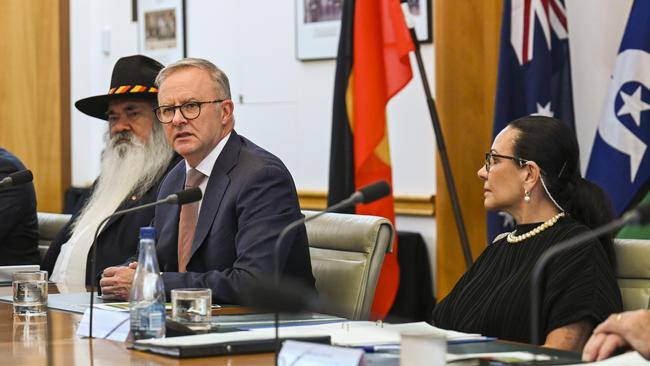
Anthony Albanese keeps saying the voice is no more than a “modest but meaningful” change about being polite to the First Australians. What he doesn’t say is that the voice is just one element in the demands of the Uluru Statement from the Heart, to which he and his government are fully committed. As recently as last weekend, at the Chifley Research Centre, he said: “I am proud to lead a government committed to the Uluru Statement from the Heart in full.”
The Uluru Statement expressly states “our Aboriginal and Torres Strait Islander tribes were the first sovereign nations of the Australian continent” and that “this sovereignty … has never been ceded or extinguished”. According to the statement, its signatories don’t just want a voice enshrined in the Constitution; they want what they call a “Makarrata Commission to supervise a process of agreement-making between governments and First Nations and truth telling about history”.
So the argument between Lidia Thorpe and the Greens is about means, not ends; it’s about what comes first: voice or treaty. Thorpe says that accepting the voice prejudices the call for sovereignty. The rest of the Greens say (and the Albanese government never contradicts them) that the voice is just the first step towards the treaties that will eventually enshrine Aboriginal sovereignty and forever change the broader concept of Australian sovereignty for everyone else. Indeed, that’s exactly what Adam Bandt, the Greens leader, declared on Monday: that he’s supporting the voice precisely because he had received “guarantees” from the government “on sovereignty and funding to progress treaty and truth”.
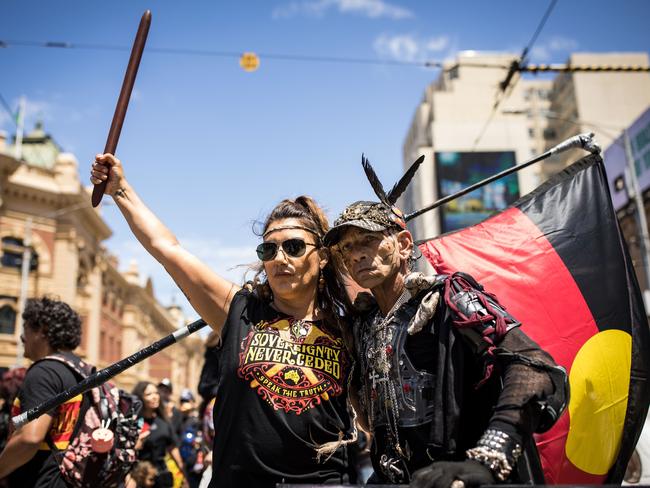
When the PM was asked about sovereignty at the weekend, he left the door open on Indigenous claims; he certainly didn’t state that any Indigenous sovereignty had been extinguished by the settlement of Australia or by the growth over two centuries of the migrant population. Instead, he danced around it, saying that the referendum will have “no impact on the issue of sovereignty”.
But that’s not what his senior colleagues think. Labor senator Pat Dodson has said at various times that the whole point of the voice is that “we are seeking recognition of our sovereign status” and that the voice is about “addressing the tyranny of Indigenous dispossession”. Then there’s Labor’s Senator Malarndirri McCarthy who recently said: “We’ve never ceded sovereignty, and do you think I’d stand by and let that happen?”
No one should be surprised the PM is trying to square the circle between Indigenous activists who want the voice to rewrite history, as if the British and 25 million others hadn’t come here starting 250 years back; and those people whose ancestry doesn’t extend back beyond 1788 and who won’t appreciate being told they’re lesser Australians. The surprise is that Albanese is being allowed to get away with reassurances that simply don’t add up.
As the historian and editor Keith Windschuttle has pointed out, the coming referendum should not be seen “merely as a sympathetic means of eroding the marginality of Indigenous people in remote communities but as a potential threat to Australia’s unique geographic and political status”. He says, in an article in last September’s Quadrant magazine, that the Indigenous activist class simply won’t accept their position as just another minority group in a diverse society – “its members want political power commensurate, not with their numbers in the population, but with the fact that they got here first”. To the activist class, he says, “closing the gap” has never really been about improving the lot of poor Aboriginal people but about re-establishing Indigenous people as the rightful possessors and titleholders to Australia.
Far from being against Indigenous sovereignty, the green-Labor alliance wants to entrench it, with ever more race-based separatism, on the understanding that Indigenous people have so far come off worse in the clash of civilisations. As early as 1982, the nationally elected National Aboriginal Conference declared that sovereignty required the eventual establishment of “Aboriginal states” that would evolve into “separate nations”. “The status thus created would be an interim for as long as the Aboriginal nation needed to evolve to the point of being able to exercise the right of self-determination”.
A close inspection of what’s under way across the Tasman is illustrative of the activists’ co-governance endgame.
As Windschuttle says, voters in the referendum should “recognise that its ultimate objective is the establishment of a politically separate race of people and the potential break up of Australia”. Hence the question: precisely what guarantees has the government given to the Greens, as affirmed by Bandt, on sovereignty, on treaty and on truth? And what promises have been made to Aboriginal leaders like Dodson? On all these questions, the PM is increasingly slippery. Perhaps because he knows only too well that if he answers them in a way that would satisfy the green-left, he would also reveal to voters this voice is a Trojan Horse to change Australia forever.
Fundamentally, what’s at stake in this debate is: who really runs Australia? Is it the parliament elected by all Australian citizens; or is it the parliament, provided the 800,000 Indigenous people represented by the voice don’t object?
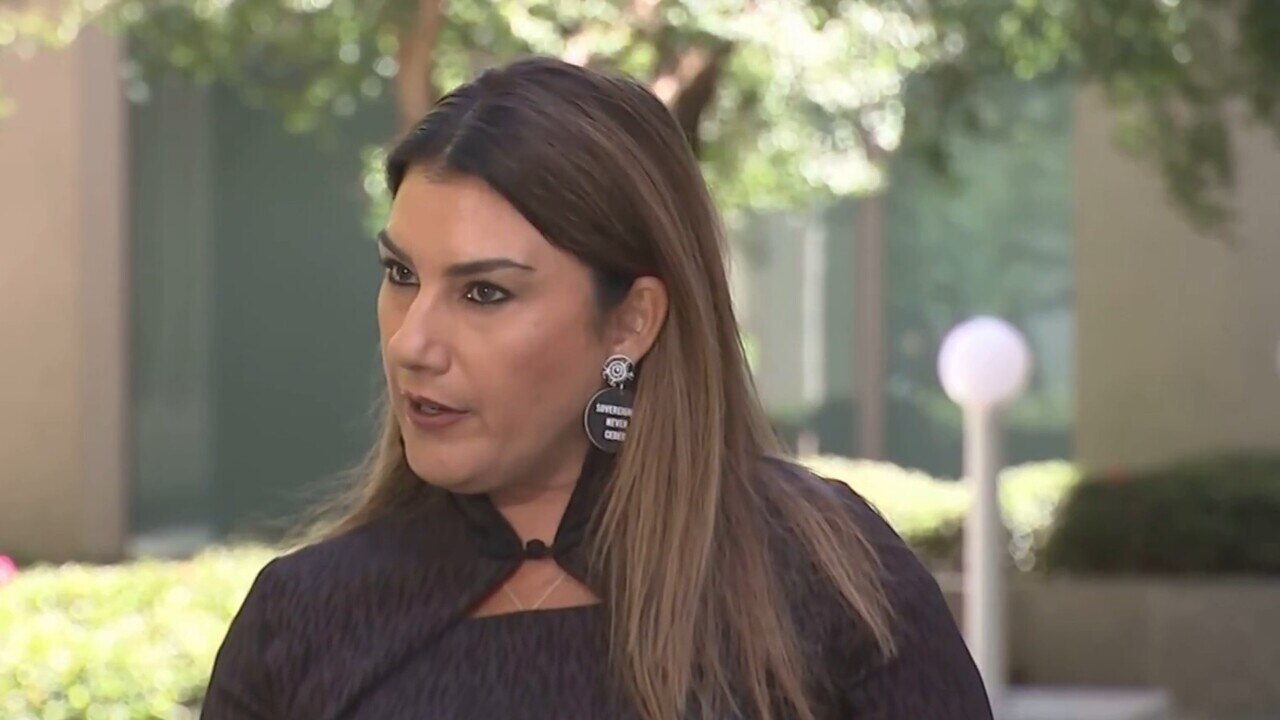
The Blak Sovereign Movement that Senator Thorpe says she now represents wants every homeowner to pay 1 per cent of wages to the relevant Indigenous body as a tax or rent to the original inhabitants whom, she says, are still really the current legal owners of Australia. According to Thorpe, those who came since 1788, and their descendants, are permissive tenants only with no absolute right to be here.
How’s that for creating two classes of citizen based on people’s ancestry? If nothing else, it undermines the decades-old multicultural push that newly arrived Australians are just as much citizens of this country as those with convict-era heritage. Should this voice pass, be under no illusion about what will then happen: Australia Day will change; there will be more demands to rewrite history; and there will be a multitude of treaties at all levels of government between our country and small groups of its citizens.
And ultimately, there will be demands for more payments from taxpayers to Aboriginal Australians – on top of the $30bn a year that the Productivity Commission estimates is currently spent on Indigenous programs.
To be clear, it’s not the spending I begrudge but the lack of outcomes tied to it, and the industry that’s grown up around the suffering of mainly women and children in remote communities that seem perversely incentivised for the suffering to continue in order to secure their next round of funding.
By blowing up the sovereignty issue this week, Thorpe might have inadvertently shaken voters out of their complacency.
The voice is not just about being polite and respectful to Aboriginal people. It’s about whether Australia belongs to all of us – or to just some of us – with the rest of us being barely tolerated interlopers.


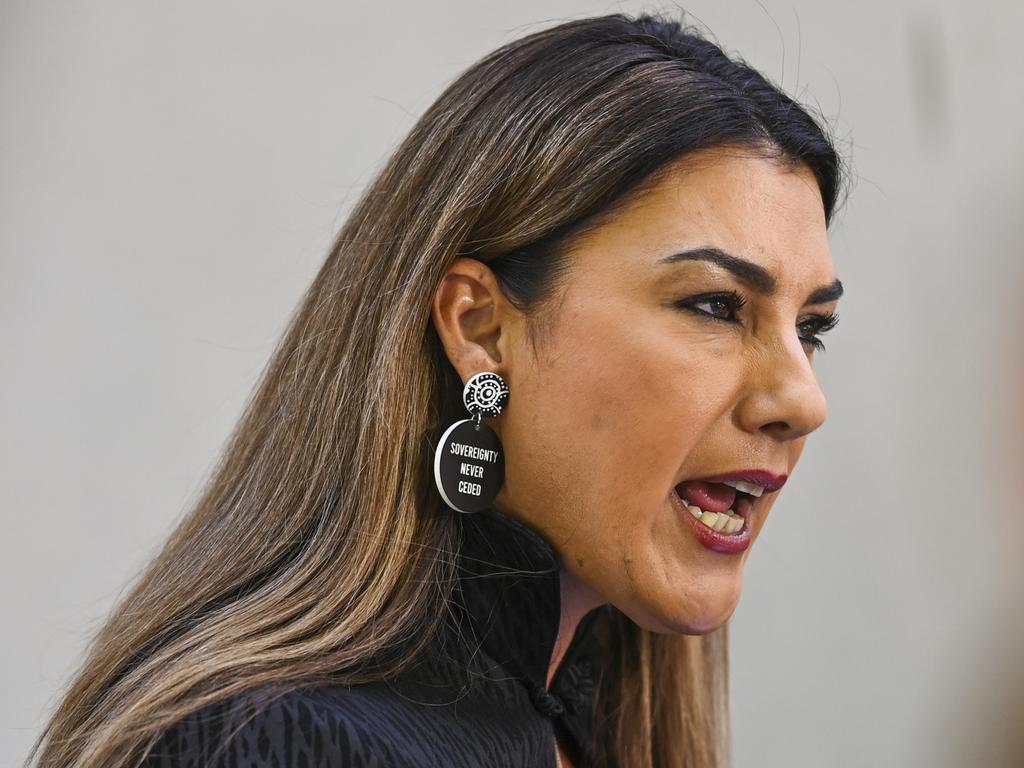
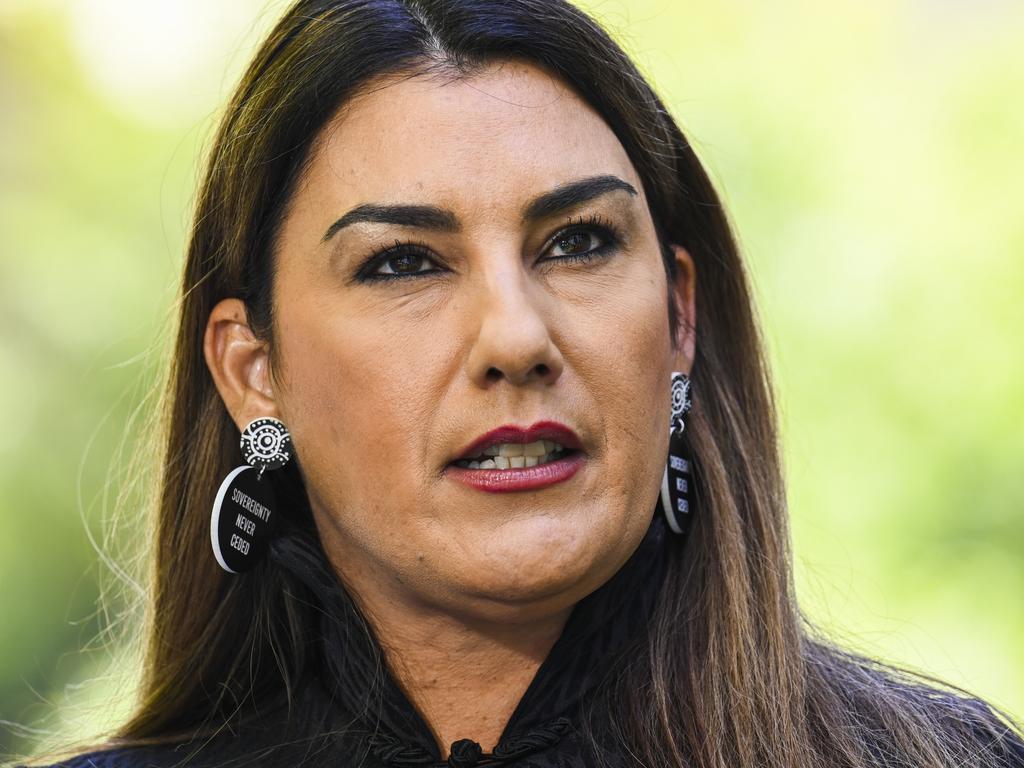


This week’s defection from the Greens of Senator Lidia Thorpe was so much more than your stock-standard act of political betrayal. It has provided a window into the real agenda behind the proposed voice, which is much more about who really owns Australia than it is about recognition and consultation.